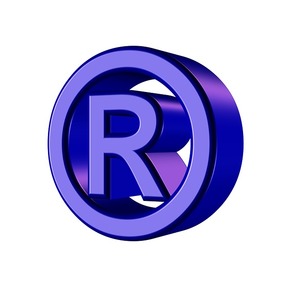the Levine ENTERTAINMENT
LAW & Business Monitor
Bringing you information, musings, and periodic rants on a variety of entertainment, intellectual property, and business topics.
 As discussed in Part 3 of this series, after it is filed with the United States Patent and Trademark Office (the “USPTO”), an application for trademark registration is assigned to an Examining Attorney. The Examining Attorney first reviews the application to ensure compliance with the federal trademark statutes and the USPTO rules. Next, the Examining Attorney conducts a substantive examination of the application. The examination includes consideration of the mark’s registrability, generally, and a review of the USPTO records to determine if the registration sought would create a likelihood of confusion with any existing federally registered marks. If the examination reveals no registration impediments, the mark proceeds to publication in the Official Gazette, a weekly journal published by the USPTO containing detailed information about all marks receiving approval for registration by their respective Examining Attorneys for the relevant publication period. Publication provides notice of the pending application to the world. After publication, any party believing it will be damaged by a particular mark's registration may, within thirty days, file an opposition to the registration or request an extension of the time to oppose the registration. An opposition is similar to a proceeding in a federal court, but is held before the Trademark Trial and Appeal Board (the "TTAB"). If no one files an opposition, or if the opposition is unsuccessful, the application will proceed and usually the mark becomes registered in due time. On the other hand, if the Examining Attorney determines that there is a minor issue with the application, he or she might contact the applicant or, if represented by counsel, the applicant’s attorney, to discuss an Examiner’s Amendment, which typically can be resolved over the telephone. However, if the Examining Attorney finds any significant issues that would prohibit registration, he or she will issue a detailed letter called an Office Action to the applicant or his or her attorney, identifying the legal impediments to registration. Similarly, any technical or procedural deficiencies in the application are typically addressed in an Office Action. The primary pitfall at this stage for many applicants (particularly those attempting to register marks without legal assistance) is failing to give due consideration to all arguments contained in the Office Action. Or worse, completely ignoring the Office Action and hoping the Examining Attorney will have a change of heart and register the mark anyway. If an Examining Attorney sends an Office Action, the applicant must take the matter seriously and file a written response within six months to avoid abandoning the application. The response must adequately address and overcome all objections under the proper legal standard or the Examining Attorney will issue a Final Refusal. In some instances, an experienced trademark attorney might be able to save an application filed previously without legal assistance through the response to the Office Action. However, because many of the issues that typically result in an Office Action can be traced to an earlier misstep in the trademark prosecution (e.g., the failure to properly clear a mark, the misidentification of good and services in the application, etc.), sometimes the problems are too significant to overcome through a response. In some instances, an applicant might be able to appeal a Final Refusal to the TTAB, or simply apply again for registration. However, before investing additional time and money after receiving a Final Refusal, it is advisable to first consult with a trademark lawyer to assess the likelihood of registration, as well as the other issues discussed throughout this series.
0 Comments
Your comment will be posted after it is approved.
Leave a Reply. |
AuthorL. Kevin Levine is the founder of L. Kevin Levine, PLLC (go figure), a boutique entertainment, copyright, trademark, and business law firm in Nashville, Tennessee. A lifelong musician who grew up in his family's music store, it was inevitable that Kevin would build his legal career in entertainment and business. Archives
June 2016
Categories
All
|
Contact Us
Phone: 615.600.4765
Connect With Us
|
Office Location1033 Demonbreun Street, Suite 300
Nashville, TN 37203 By appointment only. Conveniently located in Nashville's vibrant Gulch district, just off Music Row and minutes from Downtown.
|
